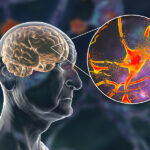By David Blyweiss, M.D., Advanced Natural Wellness
March 30, 2015
- Do this each day to keep Alzheimer’s away
- Best way to keep your brain firing on all cylinders
- Fun tips to flex your brainpower
The idea of getting Alzheimer’s disease and losing your mental faculties strikes fear in almost everyone. And the fact that there is no cure for this disease makes it even more horrifying.
But I’m often surprised by the number of people who still believe there isn’t any way to prevent Alzheimer’s disease.
They think if a parent or grandparent had it, they’re fated to get it too. However, even if you carry the apolipoprotein E-e4 (APOE-e4) gene, it’s not a guarantee you’ll develop Alzheimer’s. In fact, many people who have the gene will never get the disease.
Now, you can’t change the cards you were dealt at birth. But there are things you can do to reshuffle the deck in your favor.
One of the most important discoveries we’ve made over the last 50 years or so is that the brain is constantly changing. New connections are made, while others may disappear. Brain volume might shrink in some areas and expand in others. Brain cells are constantly regenerating. It’s like a roadmap that changes every day.
This ability the brain has to adapt and change over time is called neuroplasticity. And today, we’re finding that negative changes in plasticity – a loss of neurons and the number of synapses between them – makes it easier for Alzheimer’s to take up residence.
MD Exposes the Hidden Danger to Your Eyes

When your eyesight starts to fail, it's a real problem. Suddenly you can't go to the grocery store... you can't get to the doctor if you have an emergency... you can't meet your friends for dinner…
Your "regular" doctor doesn't have time to keep up with the latest research. And the same goes for eye doctors. They go to school to learn how to fit you for glasses and contacts, but have no way of preventing the damage and loss of eyesight that threatens your freedom and independence.
Let me show you something that explains a LOT about how your eyes work.
In my FREE Special Report, I'll show you a HUGE, untapped resource for your eyes that safely and naturally restores clear, effortless eyesight.
Click here to get started...
The key, then, is to boost plasticity by building a strong network of connections in your brain. And since brain deterioration begins long before old age, the sooner you get started the better off you’ll be.
A few years ago we learned there are five healthy behaviors that can significantly cut your risk of Alzheimer’s and dementia.
These include:
1. Not smoking
2. A body mass index between 18 and 24.9
3. Eating three or more portions of fruit and/or vegetables a day
4. Walking two or more miles each day, cycling ten or more miles each day or regular exercise
5. Consuming less than three units of alcohol each day (3 pints of beer, 75 ml of spirits, 250 ml of wine)
Do you know which of the five has the greatest impact on reducing your chances of Alzheimer’s?
It’s the exercise. In fact, it works so well that if you regularly engage in physical activity, it can cut your risk of Alzheimer’s by almost 40%. Even if you start exercising later in life, it can reduce the odds of mental decline by about a third.
Are You Suffering From...
- Love handles and a pot belly
- Romance that isn't what it used to
- Forgetfulness and inattention
- Low (or no) strength and endurance
- A sex drive that's shifted into neutral...or worse
If so...you may have Mature Male Burnout. Click here to discover more about this unique condition and what you can do about it.
How does it work? Regular exercise…
- Nourishes your neurons. Exercise boosts production of a protein that acts like a fertilizer to grow and nourish neurons. It’s called brain-derived neurotrophic factor (BDNF). This protein encourages the growth of new neurons, improves their function and protects them from stress.
- Decreases the buildup of beta-amyloid plaque. Amyloid is a key factor when it comes to the development of Alzheimer’s disease. Exercise even helps people who carry the gene variant (APOE-e4) that puts them at greater risk of Alzheimer’s.
- Increases the size of the brain’s hippocampal area.This is the seahorse-shaped area in the brain that plays an important role in consolidating short-term memories into long term memories.
- Increases the size of the brain’s prefrontal area. This region of the brain is important for planning and organization. It also regulates behavior and keeps us from doing things like stripping down in public, yelling cuss-words for no reason and other bizarre acts.
- Reduces white matter lesions. These are pockets of dead cells that can affect the way your brain transmits information to the thinking areas of your brain. It’s now believed changes in white matter could be one of the earliest detectable brain changes in Alzheimer’s disease.
Now, if you had a pill that did all that, you’d probably take it. And you’d probably spend a lot of money for it.
Moving your body more frequently can be the equivalent – without the cost. It’s probably the single most important thing you can do for your long-term mental health. And, it doesn’t even have to be anything strenuous.
To start with, I recommend you walk for 30 minutes, twice a day. Toss in a couple of short bursts of intensity for good measure and your brain will be all the happier for it. And don’t forget – before changing up your exercise habits, be sure to check in with your doctor.
But I have a caveat…
Don’t walk the same route – or to the same places – every day. By walking different routes, your brain doesn’t get comfortable, or “unengaged.” It’s constantly taking in new information and processing it. This keeps your brain active and helps build all of those connective networks it needs to beat down Alzheimer’s.
There are plenty of other ways to get active and engaged, too.
For example, take the stairs instead of the elevator. Park in the furthest spot at the mall or grocery store instead of the closest – and don’t always park in the same area – mix it up.
Try bicycling, yoga, dance classes, strength training and swimming. I’m 100 percent behind anything that gets you moving. Just make sure to change things up regularly to keep your brain stimulated.
In addition to exercising your body, it’s also important to exercise your brain. Here are some fun ways to start flexing your brainpower and keep your neurons firing the way they should…
Learn something new. Revive your natural learning skills by studying a new area of interest, signing up for adult education classes, or even learning a new hobby. For example, you could study a new language, take up golf or learn how to play a musical instrument.
Change things up. Take a walk to explore your neighborhood, drive to the local art museum and investigate the exhibits, or stop by the library to pick up a book. The key is to do something different – and stimulating – every single day.
Brain games are another winner. There are plenty of online brain games available for free. Or, go old-school and take up crosswords, Sudoku or brain-teasers. These are available online or in magazine format.
Eat well. Nourish your body. And get plenty of mental and physical exercise to keep your brain younger, healthier and firing on all cylinders well into old age.
Resources:
Elwood P, et al. “Healthy lifestyles reduce the incidence of chronic diseases and dementia: evidence from the Caerphilly cohort study.” PLoS One. 2013 Dec 9;8(12):e81877.
Geda YE, et al. “Physical exercise, aging, and mild cognitive impairment: a population-based study.” Arch Neurol. 2010 Jan;67(1):80-6.
Head D, et al. “Exercise Engagement as a Moderator of the Effects of APOE Genotype on Amyloid Deposition.” Arch Neurol. 2012 Jan 9.






